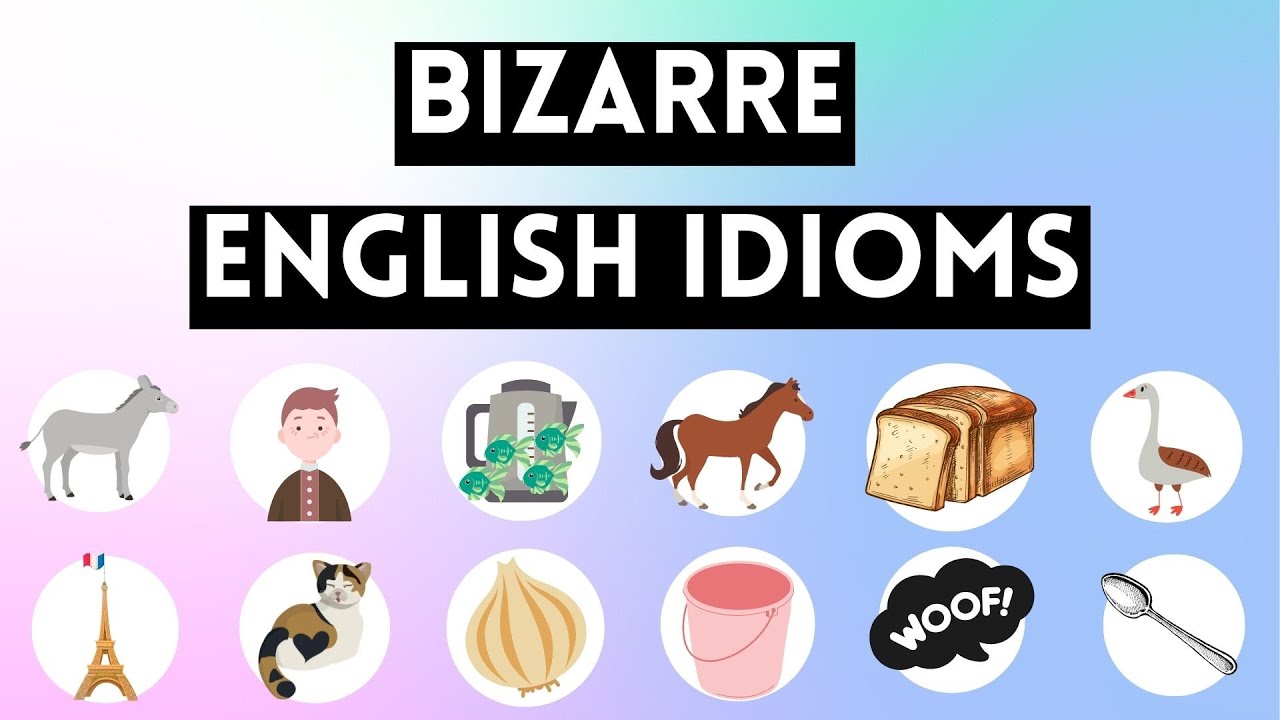A Whimsical Journey: Exploring English’s Most Bizarre Idioms and Their Origins
When you stop to think about it, the English language can seem like a curious playground. Idioms those phrases we use every day without batting an eye often have strange and wacky origins. Imagine trying to explain “It’s raining cats and dogs” to someone who’s never heard it before. Let’s embark on a whimsical journey to uncover the stories behind some of these odd expressions.
Biting the Bullet: A Brave Face or Tasty Treat?
While it might sound like a dangerous snack, the phrase “bite the bullet” actually comes from a time when patients undergoing surgery without anesthesia would literally bite on a bullet to cope with the pain. So, when someone says they’re “biting the bullet”, they’re facing a challenging situation head-on.
Break a Leg: An Odd Way to Say Good Luck
Telling someone to “break a leg” might sound mean, but it’s actually a way to wish them luck. This quirky phrase has theatrical origins. Superstitious actors believed wishing someone “good luck” would actually bring bad luck. So, they did the opposite!
The Cat’s Pajamas: The Coolest Feline Around
No, this isn’t about a stylish feline heading to a sleepover. In the 1920s, anything considered top-notch or excellent was referred to as the “cat’s meow” or “cat’s pajamas.” It was the bee’s knees, another idiom meaning essentially the same thing!
Don’t Throw the Baby Out with the Bathwater
This phrase is all about not getting rid of something valuable while disposing of the unnecessary. Its roots are a bit murky, but some suggest it dates back to a time when families shared bathwater. By the time the baby was bathed, the water was so murky, one might lose sight of the baby. It’s a cheeky way of reminding someone to be careful!
An Arm and a Leg: A Pricey Purchase
If something costs “an arm and a leg”, it’s pretty expensive. This phrase likely comes from the world of fine art. Portraits that included limbs (arms and legs) required more skill and were more expensive than those just showing the face.
Jumping on the Bandwagon: The Original Hype Train
Before we had viral trends and the online hype, we had actual bandwagons. In the 19th century, performers and politicians rode through towns on bandwagons, playing music and gaining supporters. If you liked what you heard, you’d jump on to show your support. Now, it’s all about joining a popular cause or activity.
Mason Slots Casino Australia: A Modern Twist on Classic Idioms
Imagine if idioms evolved with modern trends. We’d have phrases like “Spin the reels of fortune” or “Chase the digital jackpot.” In fact, online spaces such as Mason Slots Casino Australia are changing the way we perceive traditional games and activities. They’re blending the classic allure of slot machines with the modern convenience of online gaming. It’s as if the “old dogs” of the gaming world are learning some “new tricks,” to use yet another idiom.
Why Idioms Stick Around
So, why do we still use these old-fashioned phrases? It’s all about imagery. Idioms paint vivid pictures with just a few words. They add color, flavor, and fun to our language. Even as times change, the human experiences these idioms represent remain relatable.
The Magic of Language
English is a rich tapestry, woven with words from many cultures and eras. It’s ever-evolving, yet it hangs onto the charming idioms of the past. This blend of old and new, much like the fusion of classic and contemporary in Mason Slots Casino Australia, adds depth and dimension to our communication.
Also Read: 6 Tips to Find Balance as a Teacher and Mom
A Whimsical Conclusion
As we conclude our journey, remember that idioms are the spice of language. They remind us that words are more than just tools; they’re the carriers of history, culture, and shared experiences. So, next time you “let the cat out of the bag” or “pull someone’s leg,” take a moment to appreciate the whimsy and wonder of the English language. After all, it’s not just about what we say, but how we say it that truly captivates the listener.

